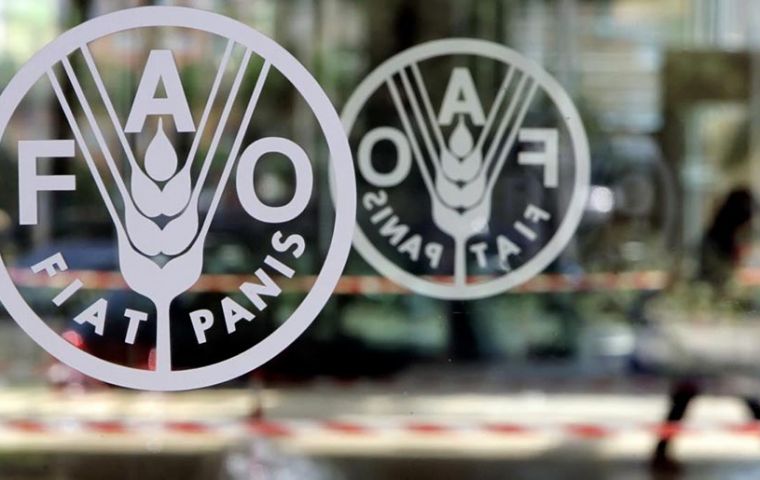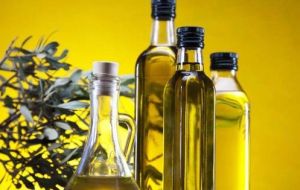MercoPress. South Atlantic News Agency
World cereal and sugar prices dip in August, but meat is up 12.3% in eight months
 FAO Sugar Price Index was down 4% from July, due largely to the weakening of the Brazilian real, as well as prospects of larger shipments by India and Mexico.
FAO Sugar Price Index was down 4% from July, due largely to the weakening of the Brazilian real, as well as prospects of larger shipments by India and Mexico.  By contrast, the FAO Vegetable Oil Index rose by 5.9% in August, hitting an 11-month high amid a rebound in global import demand for palm oil
By contrast, the FAO Vegetable Oil Index rose by 5.9% in August, hitting an 11-month high amid a rebound in global import demand for palm oil  The August FAO Meat Price Index rose by 0.5 percent, now up 12.3 percent from its value at the beginning of the year.
The August FAO Meat Price Index rose by 0.5 percent, now up 12.3 percent from its value at the beginning of the year. Global food prices declined in August, driven by sharp falls in the prices of staple cereals and sugar, according to a report issued today by the Food and Agriculture Organization of the United Nations.
The FAO Food Price Index, which tracks monthly changes in the international prices of commonly traded food commodities, averaged 169.8 points in August 2019, down 1.1 percent from July while still up 1.1 percent from its August 2018 level.
The FAO Cereal Price Index declined by 6.4 percent from the previous month. Maize values turned sharply lower due to expectations of a much larger than previously anticipated harvest in the United States of America, the world's largest maize producer and exporter. Wheat prices also remained under downward pressure, reflecting ample export availabilities, but those of rice edged up, due to seasonal effects as well as concerns over the impact of weather on crops in Thailand.
The FAO Sugar Price Index was down 4.0 percent from July, due largely to the weakening of the Brazilian real, as well as prospects of larger shipments by India and Mexico.
By contrast, the FAO Vegetable Oil Index rose by 5.9 percent in August, hitting an 11-month high amid a rebound in global import demand for palm oil as well as unfavorable weather conditions in Indonesia's major growing regions. Soy oil prices also rose, driven in part by lower than anticipated crush volumes in North America.
The August FAO Meat Price Index rose by 0.5 percent, now up 12.3 percent from its value at the beginning of the year. The increase reflected higher international price quotations for pig meat, underpinned by strong import demand from China, where the African Swine Fewer has curtailed domestic production.
The FAO Dairy Price Index rose by 0.5 percent from its July level, reversing sharp falls registered in the previous two months, as price quotations rose for cheese, Skim Milk Powder and Whole Milk Powder.




Top Comments
Disclaimer & comment rulesCommenting for this story is now closed.
If you have a Facebook account, become a fan and comment on our Facebook Page!